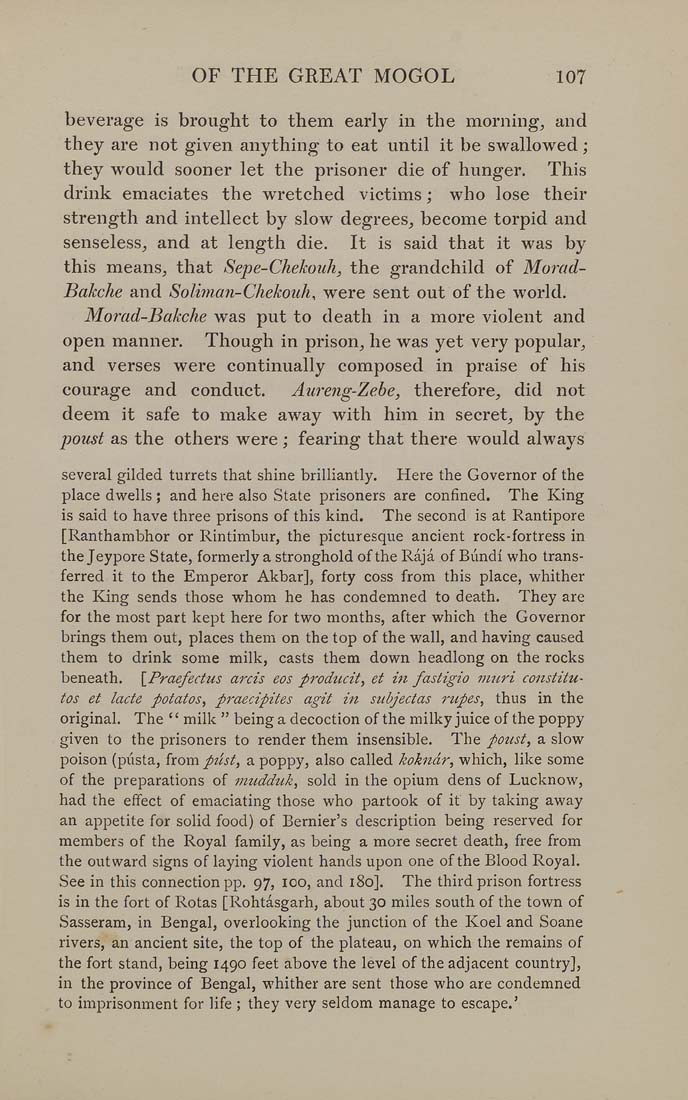OF THE GREAT MOGOL 107
beverage is brought to them early in the morning, and
they are not given anything to eat until it be swallowed;
they would sooner let the prisoner die of hunger. This
drink emaciates the wretched victims; who lose their
strength and intellect by slow degrees, become torpid and
senseless, and at length die. It is said that it was by
this means, that Sepe-Chekouh, the grandchild of Morad-
Bakche and Soliman-Chekoidi, were sent out of the world.
Morad-Bakche was put to death in a more violent and
open manner. Though in prison, he was yet very popular,
and verses were continually composed in praise of his
courage and conduct. Aureng-Zebe, therefore, did not
deem it safe to make away with him in secret, by the
poust as the others were ; fearing that there would always
several gilded turrets that shine brilliantly. Here the Governor of the
place dwells ; and here also .State prisoners are confined. The King
is said to have three prisons of this kind. The second is at Rantipore
[Ranthambhor or Rintimbur, the picturesque ancient rock-fortress in
the Jeypore State, formerly a stronghold of the Raja of Bundi who trans¬
ferred it to the Emperor Akbar], forty coss from this place, whither
the King sends those whom he has condemned to death. They are
for the most part kept here for two months, after which the Governor
brings them out, places them on the top of the wall, and having caused
them to drink some milk, casts them down headlong on the rocks
beneath. [Praefectus arcis eos producit, et in fastigio muri constitu-
tos et lade potatos, praecipites agit in subjectas rupes, thus in the
originak The " milk " being a decoction of the milkyjuice of the poppy
given to the prisoners to render them insensible. The poust, a slow
poison (piista, from pilst, a poppy, also called kokndr, which, like some
of the preparations of mudduk, sold in the opium dens of Lucknow,
had the effect of emaciating those who partook of if by taking away
an appetite for solid food) of Bernier's description being reserved for
members of the Royal family, as being a more secret death, free from
the outward signs of laying violent hands upon one of the Blood Royal.
See in this connection pp. 97, 100, and 180]. The third prison fortress
is in the fort of Rotas [Rohtasgarh, about 30 miles south of the town of
Sasseram, in Bengal, overlooking the junction of the Koel and Soane
rivers, an ancient site, the top of the plateau, on which the remains of
the fort stand, being 1490 feet above the level of the adjacent country],
in the province of Bengal, whither are sent those who are condemned
to imprisonment for life ; they very seldom manage to escape.'
|








